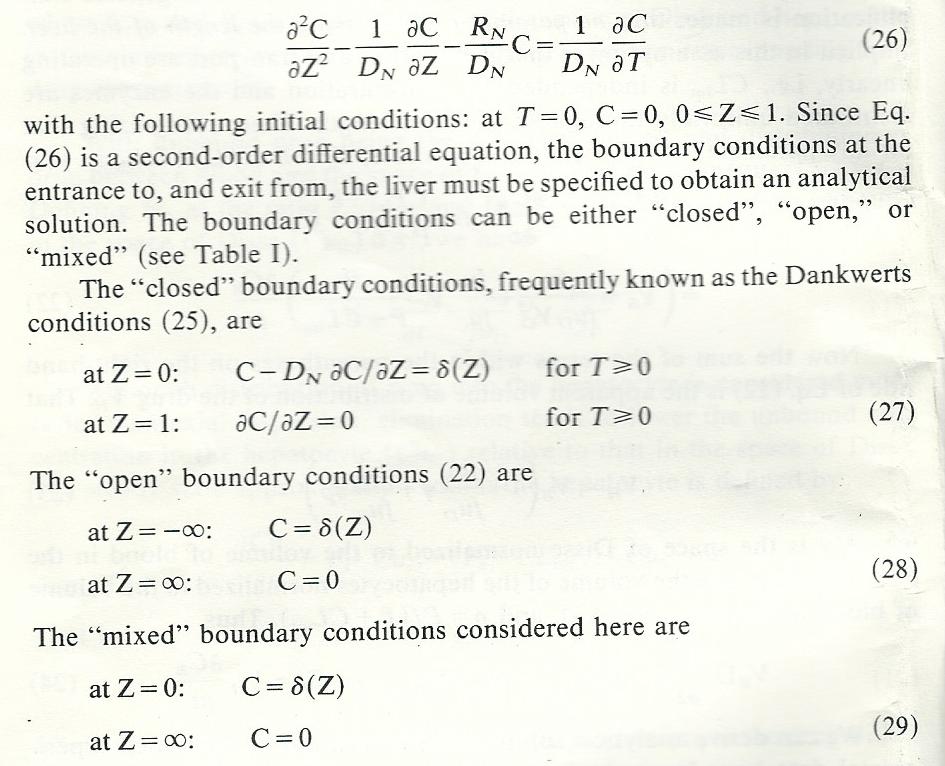How can be solved the following PDE using NDSolve or DSolve
Derivative[1, 0][c][z, t] + Derivative[2, 0][c][z, t] - c[z, t]
== Derivative[0, 1][c][z, t]
Initial conditions: At t =0, c(z,0)= 0, 0<=z<=1 Boundary conditions are at z=0, c=DeltaDirac(t) and at z =Infinity, c=0
(*Note: I solved the equation using Laplace Transform obtaining c(z,t) =z/(E^((5t^2 - 2tz + z^2)/(4t))(2Sqrt[Pi]Sqrt[t^3])) ) Below is the original problem(Robert & Rowland, 1986) . Here is assumed r=1 and d=1 and mixed condition) 